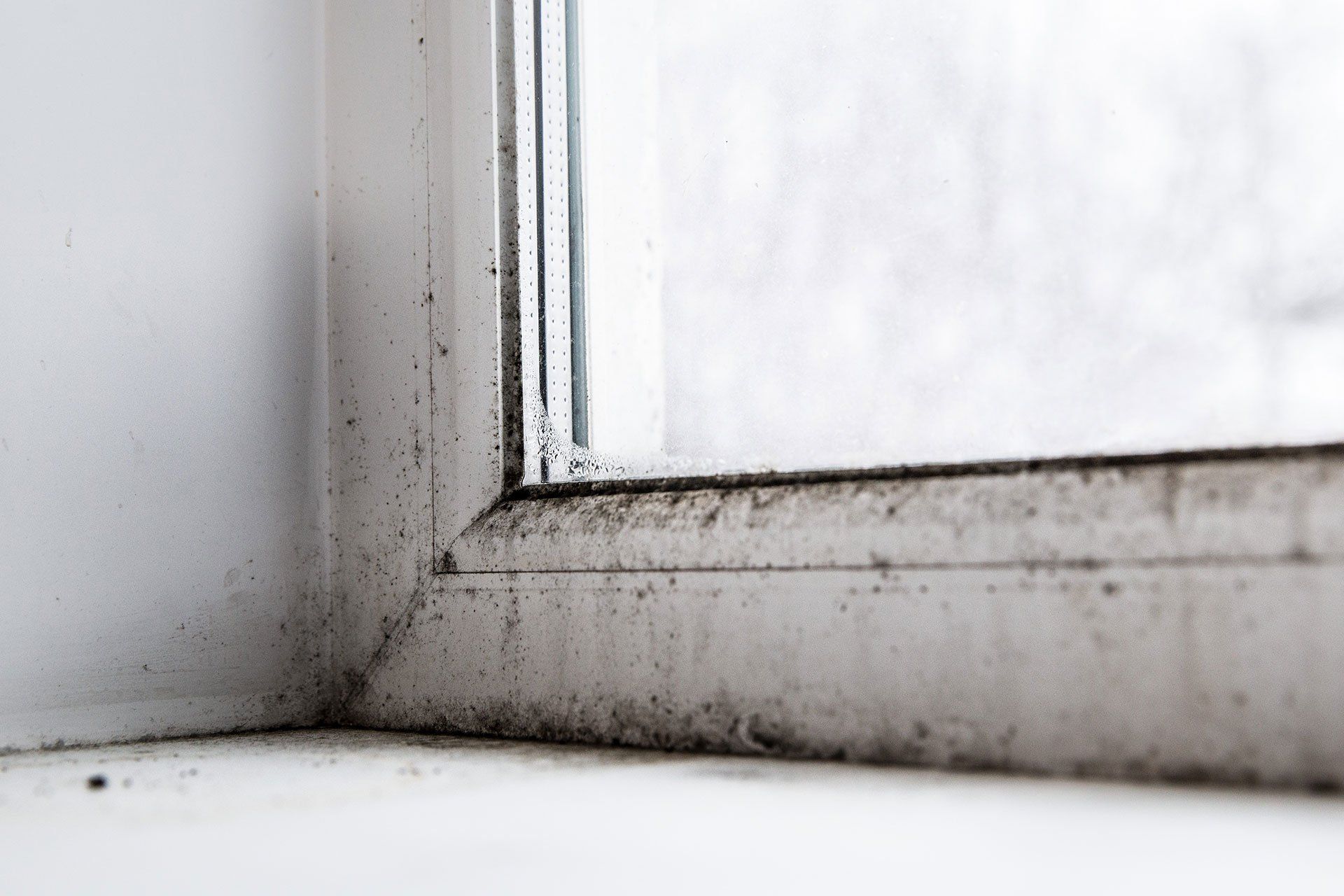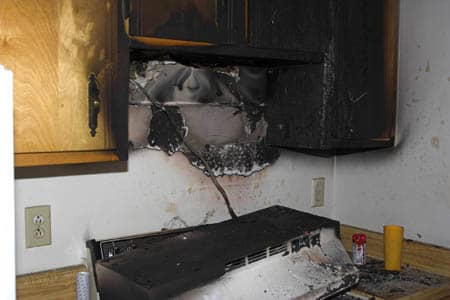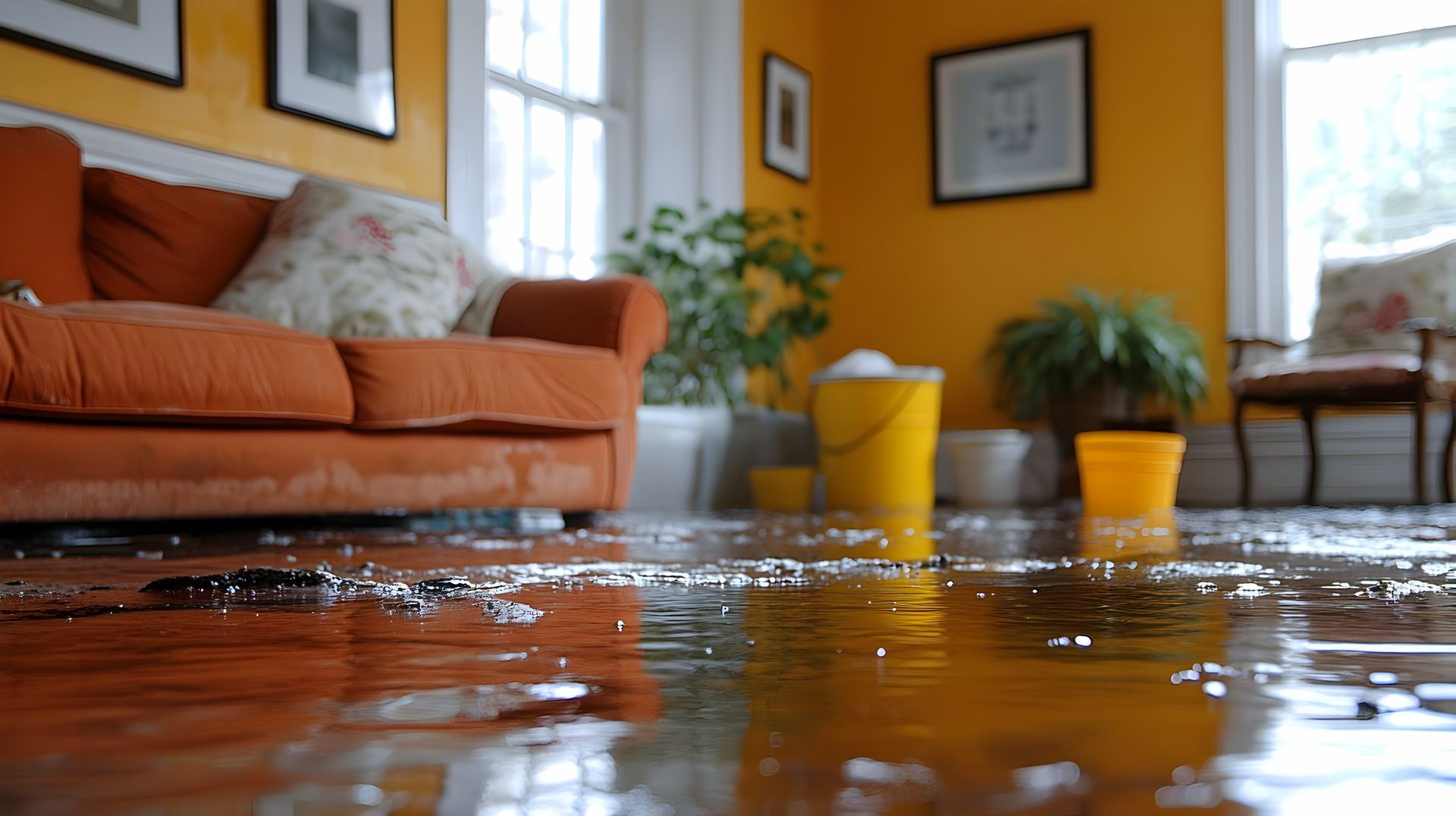What to Do After a Dishwasher Leak
A leaking dishwasher might seem like a minor inconvenience, but even a small leak can cause significant water damage to your kitchen floors, cabinets, and subflooring if not handled quickly. Water can seep into hidden areas, leading to mold growth, warped wood, and costly repairs.
As a professional water damage restoration company, we’ve seen firsthand how quickly a small appliance leak can turn into a major headache. In this guide, we’ll walk you through exactly what to do after a dishwasher leak, how to minimize damage, and when to call the experts for professional help.
Step 1: Turn Off the Water Supply
The first thing you should do when you notice your dishwasher leaking is to turn off the water supply.
Locate the shutoff valve—usually under the kitchen sink—and turn it clockwise to stop the water flow. If you can’t find it or it’s not working, turn off your home’s main water supply instead.
Cutting off the water source prevents more water from leaking onto your floors and causing further damage.
Step 2: Unplug the Dishwasher
Safety should always come first. Once the water is off, unplug your dishwasher or turn off the power at the circuit breaker.
Water and electricity don’t mix—this step reduces the risk of electrical shock or short circuits while you clean up the area.
Step 3: Soak Up Standing Water Immediately
Use towels, a mop, or a wet/dry vacuum to remove as much standing water as possible from the floor.
Be sure to check underneath and around the dishwasher, as water often pools beneath appliances.
If you have hardwood or laminate flooring, quick removal is essential—these materials can warp or buckle within hours of exposure to moisture.
Step 4: Assess the Extent of the Damage
- Once the visible water is gone, take a closer look at the surrounding areas:
- Check cabinets and baseboards for swelling or discoloration.
- Look under nearby appliances for moisture.
- Inspect the flooring for soft spots or separation.
Water can easily travel under flooring and behind walls, so what looks like a minor leak may actually be more serious.
If you suspect hidden moisture, contact a water damage restoration specialist who can use moisture meters and thermal imaging cameras to detect water you can’t see.
Step 5: Identify the Cause of the Leak
Before using your dishwasher again, determine where the leak originated. Common causes include:
- A loose or damaged hose connection
- A cracked dishwasher door gasket
- Clogged or broken filters
- A malfunctioning water inlet valve
- Overloading the dishwasher or using the wrong detergent
If you’re unsure where the leak is coming from, have a plumber inspect it. Fixing the underlying issue ensures you won’t face another water leak soon after cleaning up.
Step 6: Dry Out the Area Thoroughly
Even after visible water is removed, moisture can linger in floors, walls, and cabinetry.
To prevent mold growth, run fans, open windows, and use a dehumidifier in the affected area for at least 24–48 hours.
If water seeped into wood or drywall, professional drying equipment may be needed.
Restoration companies use industrial-grade air movers and dehumidifiers that dry materials much faster and more thoroughly than household fans.
Step 7: Check for Mold Growth
Mold can start growing within 24–48 hours of water exposure. If you notice a musty smell or dark spots around your dishwasher, baseboards, or floors, it’s a sign of mold development.
Mold remediation should always be handled by professionals, especially if it has spread behind walls or under flooring. Certified restoration technicians can safely remove affected materials and sanitize your kitchen to prevent future growth.
Step 8: Call a Professional Water Damage Restoration Company
Even if the leak seems minor, hidden water damage can lead to major problems later.
A water damage restoration company will:
- Inspect the damage using advanced moisture detection tools
- Extract remaining water and thoroughly dry the area
- Sanitize and deodorize affected surfaces
- Repair or replace damaged materials
- Help you file an insurance claim if applicable
- Professional restoration ensures your home is completely dry and safe, preventing costly future repairs.
Step 9: Prevent Future Dishwasher Leaks
Once your kitchen is dry and repaired, take steps to avoid future leaks:
- Regularly inspect hoses and connections for wear or cracks.
- Replace rubber hoses every 5–7 years.
- Clean filters and spray arms monthly.
- Avoid overloading the dishwasher or using too much detergent.
- Schedule periodic appliance maintenance checks.
- A little prevention goes a long way in keeping your kitchen dry and damage-free.
Why Prompt Action Matters After a Dishwasher Leak
Water damage isn’t just about wet floors—it’s about what happens after the leak.
Without quick and proper drying, moisture can lead to:
- Mold and mildew growth
- Structural damage to floors and cabinets
- Electrical hazards
- Deterioration of subflooring
- Costly long-term repairs
That’s why time is of the essence. Acting fast—and calling professionals if needed—can make the difference between a minor inconvenience and a major restoration project.
How Professional Restoration Helps
When you work with a water damage restoration company, you’re not just cleaning up water—you’re restoring safety, comfort, and peace of mind.
Certified technicians use specialized tools to detect hidden moisture, dry affected materials, and prevent secondary damage.
Most importantly, they can work directly with your insurance provider to document the damage and simplify your claim process.
Call Wow Total Cleaning & Restoration Today!
Discovering a dishwasher leak can be stressful, but knowing what to do next makes all the difference. By shutting off the water, drying the area quickly, and calling professionals for help, you can protect your home from long-term water damage.
If you’re dealing with a dishwasher leak or any kind of appliance-related water damage, contact Wow Total Cleaning & Restoration right away.
Fast, professional action is the best way to safeguard your home, prevent mold, and restore your kitchen to its original condition.






